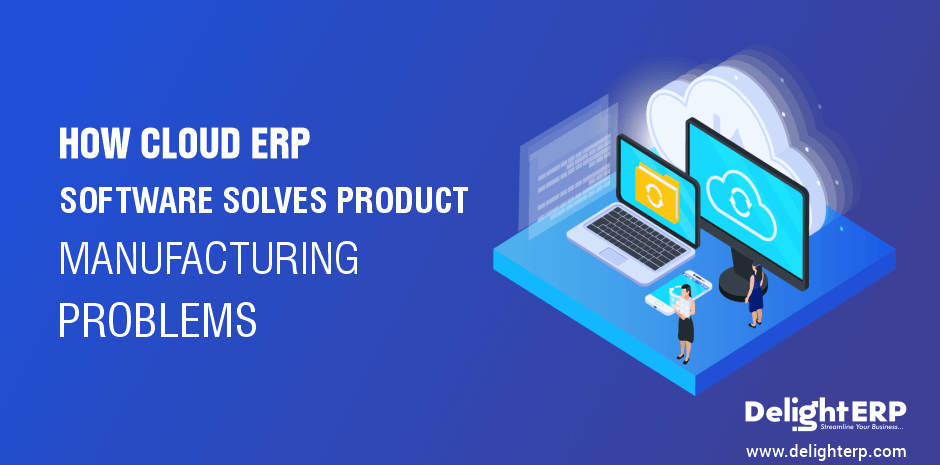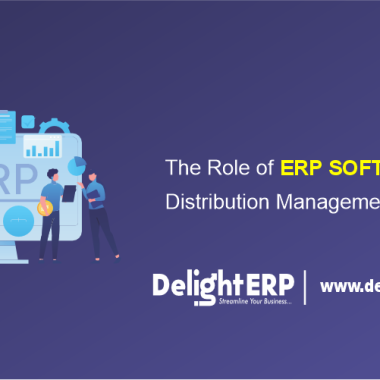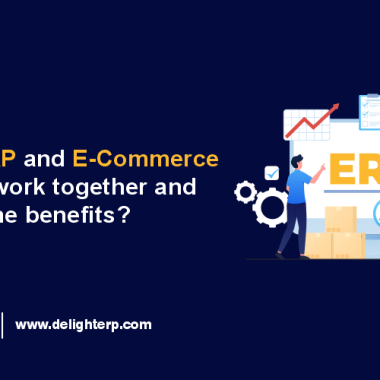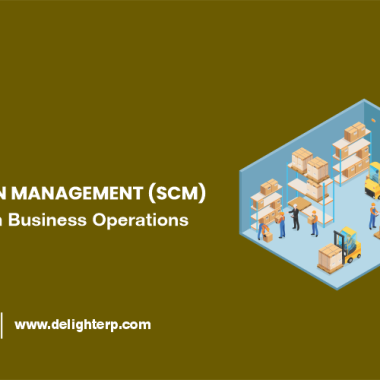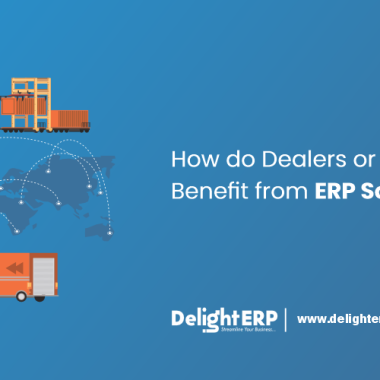Most of the manufacturing companies face a common problem- distribution of the supply chain.
This problem can be easily solved if the manufacturing company uses cloud-based enterprise resource planning (ERP).
Cloud ERP software can help the companies increase the work accuracy, speed, intelligence to use the company resources efficiently, and improve the overall manufacturing process. Generally, when a new product is launched, and the marketing team works hard to set the target audience, the communication, and deals with the people and the company increase drastically. So to maintain these data, run time becomes a cumbersome task, and hence an online solution for the same is needed, which is provided by cloud-based ERP software.
Cloud ERP software also helps the manufacturing companies in speeding up the sales process. This solution is a must-have solution for the high-end industries like: aerospace industry, defense forces, etc. which have very much high pressure to follow the lifecycle for product development, complete the projects and processes on time, and hence management of timelines for the same, and therefore all these industries must use the cloud-based ERP for the management of their resources.
Also, see these ERP Myths That Can Stall Your ERP Software Initiative.
Common Product Manufacturing Problems Are:
Let’s have a quick discussion about what the manufacturing industries are facing and how the cloud-based ERP software helps overcome those problems.
1. Inefficient forecasting system
Manufacturers have demanded an improvement in the forecasting system to set a common goal to carry out manufacturing processes. If the forecast system is not so interpretable, then the consequences that the company might need to face are: increase in the cost of manufacturing, increase in the efforts and pressure to accomplish the tasks on the employees, and again, if the value of manufacturing process increases, then the profit margin placed in the manufacturing of that product might also decrease.
The solution to this problem can be given by the cloud ERP software, where it keeps control over the complexities of the supply chain by integrating it with the software’s supply chain management modules. The software can also include the tools that can manage the forecasting system and the planning for the manufacturing process so that there is no degradation in the manufacturing process’s performance.
2. Increasing costs:
Most of the time, when the company budget exceeds beyond a limit, the costs are adjusted by cutting most of the revenues and allowances levied by the company for the manufacturing process. As the value of the revenue increases, the sales team has to pitch their skills to gain more clients so that the requirements can be met in terms of revenue. This, in turn, increases the manual efforts, which again increase the cost for the same.
Solution: The Cloud ERP software enables the dynamic changes as per the changes faced in the manufacturing process, for example, change in the cost of manufacturing parts, a shift in product delivery estimations, etc. These data can be stored in the cloud database, which means anybody in the organization can have access to the data anytime.
3. Couldn’t meet up to customer expectations:
To survive in this competitive environment, companies consistently try to make their product unique and differentiable concerning the other products in the market. There is continuous pressure regarding the survival of the company in the competition, and hence upgrading the existing product is also an important thing to consider. But, this comes with increasing production costs. If the company tries to launch a new and innovative product in the market, we might say that its budget can be profoundly affected. If they try to preserve the budget, then the company might fail to meet customer expectations.
The solution to this problem is that ERP helps the company collaborate with customer needs. Due to its features of alerts, reminders, regular updates, you can complete the project on time. Social media connectivity features help you to be in touch with your leads and customers. It also includes supply chain management, managing the configurations to monitor, quoting, and selling complicated and newly launched products quickly.
4. Increasing competition worldwide:
Companies are trying their best to expand their scope across all possible fields of the industry. For this, supply chain management plays a crucial part in getting new opportunities.
Manufacturers need to put the supply chain at the focal point of their ventures to accomplish their basic needs, and eventually, out-move rivalries as they take advantage of new development opportunities.
The solution to this problem is the supply chain management module provided by the Cloud ERP software.
The process of lean manufacturing uses this module of ERP. With this solution, there will be an increase in speed, communication, performance of the supply chain for the company. This will enable improved communication speed and chances of collaboration between the companies and the customers, or between two companies.
5. Managing Inventories:
Inventory management is one of the critical issues faced by companies during the manufacturing process. If your company’s inventory is up to the mark, it assures you that the company will meet the customer’s demands and can supply the required products on time. If an issue is faced in the inventory, then it may cost a delay in the manufacturing process, which ultimately leads to the failure to meet the customer’s demand and supply the relevant products. It might also increase the time, efforts, and cost of the manufacturing process.
The solution given by the Cloud ERP software shows the built-in inventory management module through which you can get run time alerts about the stock of the production material available, the prior announcement of the required capital, alert for the stock being reduced in quantity, etc. Hence, the inventory can be managed efficiently on ERP software.
6. Planning of material requirement:
The material required for the manufacturing process, its quantity, quality, cost, where to import, whom to contact, etc. are the things that need to be kept in mind for a manufacturing process. Even a small mistake in this data will lead to a delay in the manufacturing process, which is not feasible, as discussed earlier.
The Cloud ERP software also has the provision for this in the form of Material Requirement management module. It provides the functionality of managing the manufacturing process’s resources and planning by keeping track of the manufacturing details like the capacity of the manufacturing plant, required raw material, etc.
This module is also useful in tracking the manufacturing process accounts, such as an optimized schedule for the procedure, billings of the raw materials imported, monitoring the status of inventory, etc.
7. Generating analysis reports:
Report generation for a particular process is the most crucial part of monitoring the status of the development of the company. Generally, this is done annually or twice in a year, but the real issue faced by the companies in the collection of the data that has been stored for a year. Collecting much amount of data seems to be a tedious task. Hence, the automized system is needed, generating the reports periodically and storing it for an extended period.
This feature has been included with the Cloud ERP software, where the software collects the data from all the departments, processes it, and generates the analysis reports as and when required.
Also, read What Is Supply Chain Management And It’s Importance.
Conclusion
Concluding our discussion, let’s have a quick summary of this topic. We had discussed the advantages of using cloud-based ERP software, which works online and manages all the modules of standard Cloud ERP software. We saw some of the issues faced by manufacturing companies like inventory management, competitive environment, resource planning, etc., and how ERP can solve those problems. I hope this helps!

